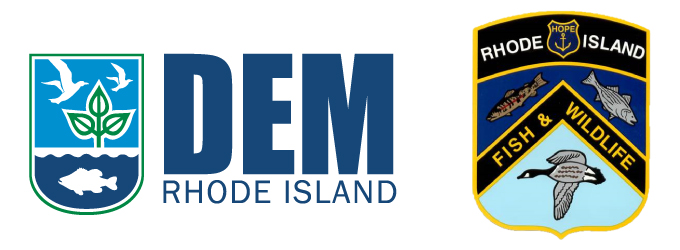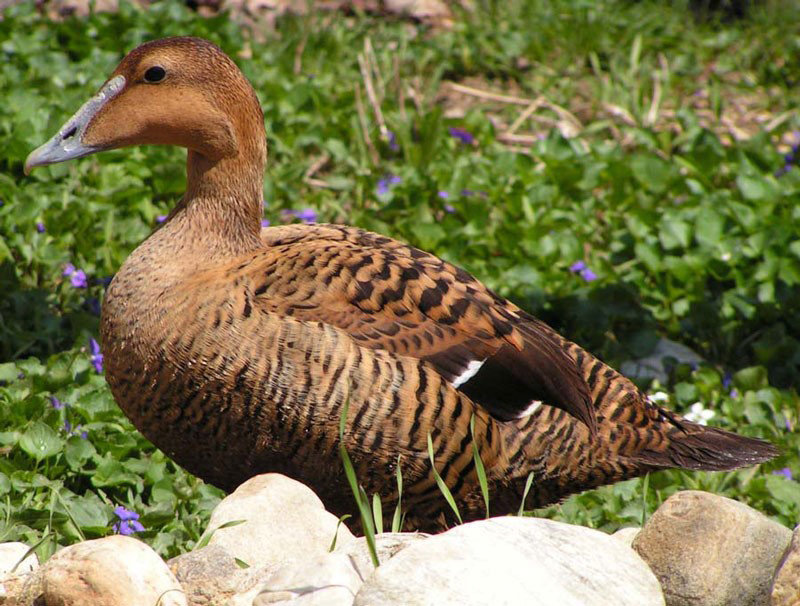
Attention RI Hunters
We're asking for your help this season by voluntarily
restricting the harvest of "brown" birds
Following an unusual episode of mortality caused by avian influenza this spring, the Canadian Wildlife Service (CWS) anticipates a decline in the number of common eiders in the St. Lawrence Estuary in 2023 and beyond. Many of these birds migrate south to winter in Rhode Island's waters.
To not further jeopardize the species, CWS is calling on the cooperation of New Brunswick, Nova Scotia, and Prince Edward Island hunters to:
- reduce, on a voluntary basis, their harvest of common eiders for the 2022 to 2023 season
- refrain from harvesting female common eiders or young. Females and young are brown in color while males are white and black
In the spring of 2022, an outbreak of highly pathogenic avian influenza (H5N1) struck at some of the largest eider colonies in the estuary, and a non-exhaustive count of carcasses recovered allowed CWS to estimate that between 5 and 15% of nesting females died. Many nests were abandoned by the females, and very few crèches (groupings of adult females with their broods) were observed in the estuary. As a result, CWS biologists expect the number of young birds for 2022 to be particularly low and the population to be lower in the coming years.
While daily bag for eiders in the Atlantic Flyway states is currently limited to no more than 3 of which only one can be a hen, we are also asking Rhode Island hunters and sea duck guides to voluntarily restrict their harvest of "brown" birds. Because of their small clutch size, few eider ducklings are hatched each year, and the survival of those birds is low. Loss to Avian Influenza compounds those problems.
Southern New England is the wintering terminus for many eiders breeding in Canada. It is irresponsible to ask Canadian hunters to forgo harvesting hens and young birds only to have them shot when they arrive here.
To allow time for eiders to recover from the recent A.I. outbreak (the same one that decimated the Northeast poultry industry and caused egg prices to skyrocket) we are asking our responsible waterfowlers to also pass on the hens and young eiders that cross in front of their barrels this year.




